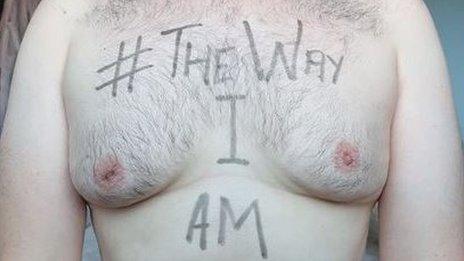'I've spent my life in fear of being called fat'
- Published
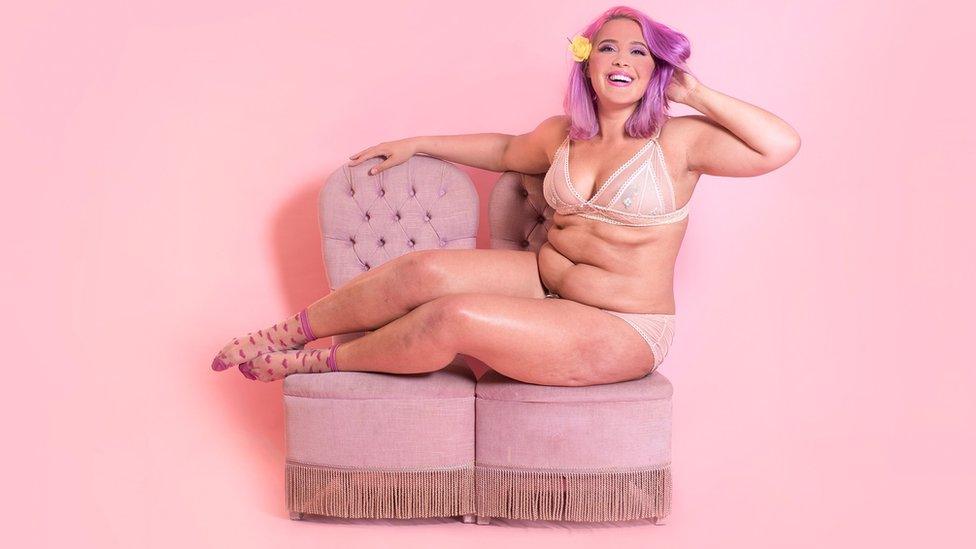
Megan Jayne Crabbe says her eyes were opened by the body positivity movement
Megan Jayne Crabbe was five years old when she started a war with her body. Instead of making friends on her first day at school, she was comparing herself to her peers and telling herself she was "chubby". Now, she has more than a million Instagram followers and recently told Parliament that "fat phobia" should be recognised as a form of prejudice.
It took Megan almost two decades to accept her body. The years leading up to that were fraught with yo-yo dieting, crippling anorexia and a spell in a residential psychiatric hospital. At 21 - having dropped out of college and then university - she hit her target weight. Still, she "hated everything" about herself.
"I knew that no matter what weight I got to, it would never be enough," says Megan, now 26. "I couldn't continue that life. I knew there had to be more. My eating disorder had taken so much from me, I wasted so much time and I refused to let it take any more.
"Somehow I stumbled across an image of a woman on Instagram wearing a bikini and talking about accepting her body - not dieting and living her life as she was. I'd never really believed that was an option before."
Allow Instagram content?
This article contains content provided by Instagram. We ask for your permission before anything is loaded, as they may be using cookies and other technologies. You may want to read Meta’s Instagram cookie policy, external and privacy policy, external before accepting. To view this content choose ‘accept and continue’.
Megan began posting body positivity messages and photos on her Instagram account Bodyposipanda, amassing hundreds of thousands of followers. She refers to herself as "chubby" in her posts and wants her followers to embrace this sort of language.
"The word 'fat' used to have the power to knock me out cold. I've spent my life in fear of being called fat, I couldn't even see the word," she said. "When I found the body positivity movement, my eyes were opened to a whole new way of seeing fat. It's just another word, a way to describe your body and we need to reclaim it."
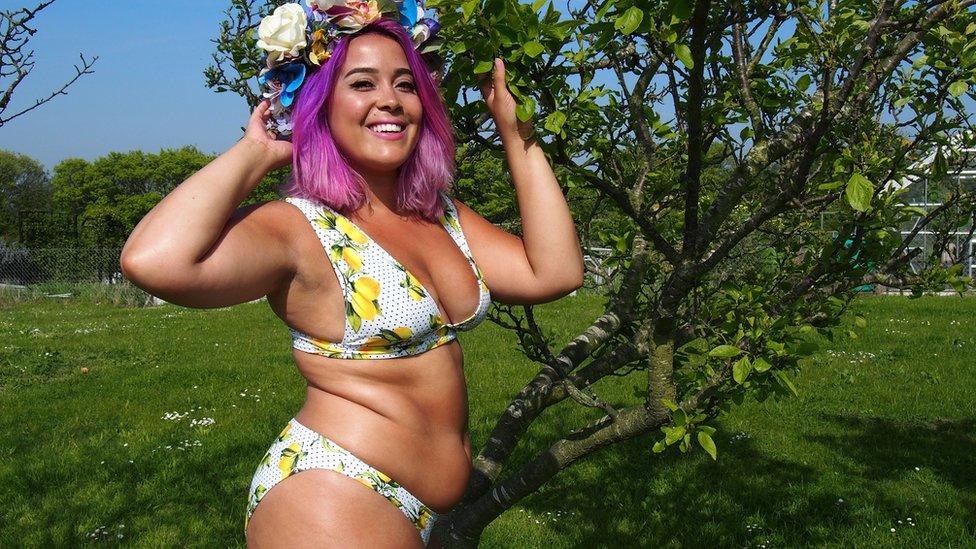
Megan Jayne Crabbe spent most of her life hating her body but now spreads the message of body positivity to more than a million followers on Instagram
Megan began dieting at 10 and told her parents she wanted to be healthier, but they soon realised it had developed into something harmful. By the time she was 14, she was diagnosed with an eating disorder and by her 20s, hating her body had "taken up so much brain space" she left education and took on a permanent role as a carer for her sister Gemma, who has cerebral palsy.
She now describes herself as an activist, model, author and public speaker and has recently completed a UK tour where she sang, danced and discussed diet culture to a combined audience of 2,000 people.
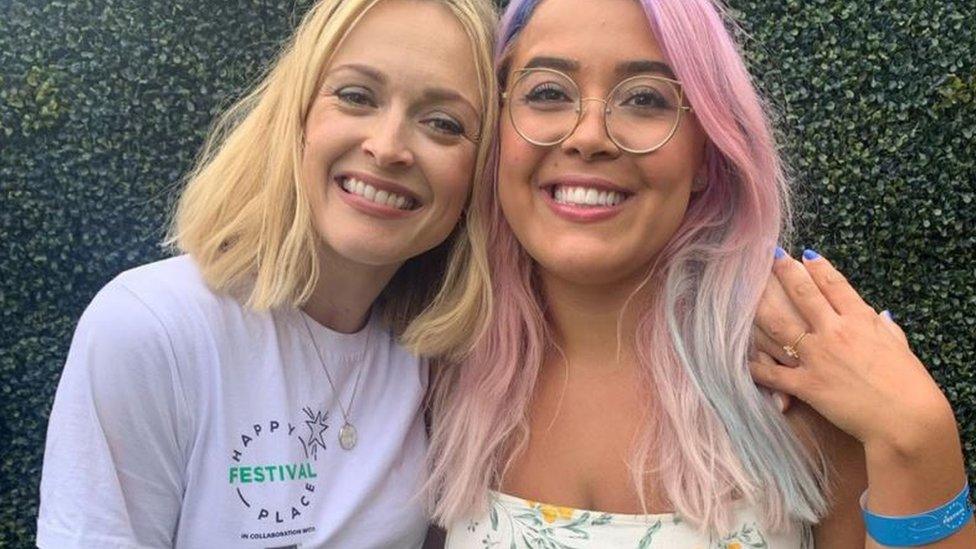
Fearne Cotton interviewed Megan for her podcast and said the chat has shifted the way she feels about herself and given her confidence
Recently, she was interviewed by Fearne Cotton for her podcast, Happy Place. The broadcaster later revealed the chat with Megan had transformed her outlook, telling Elizabeth Day's How to Fail podcast it was a "seminal moment" for her.
"I can't tell you how transformative that chat was for me. I was just hanging off her every word and it's been another shift of consciousness for me where I realised how unkind I was still being to myself," said Fearne. "I went on a beach holiday afterwards for a week and usually I would hate wearing a bikini and beat myself up about this and that, and I just didn't [care]. It was so wonderful."
You might also be interested in:
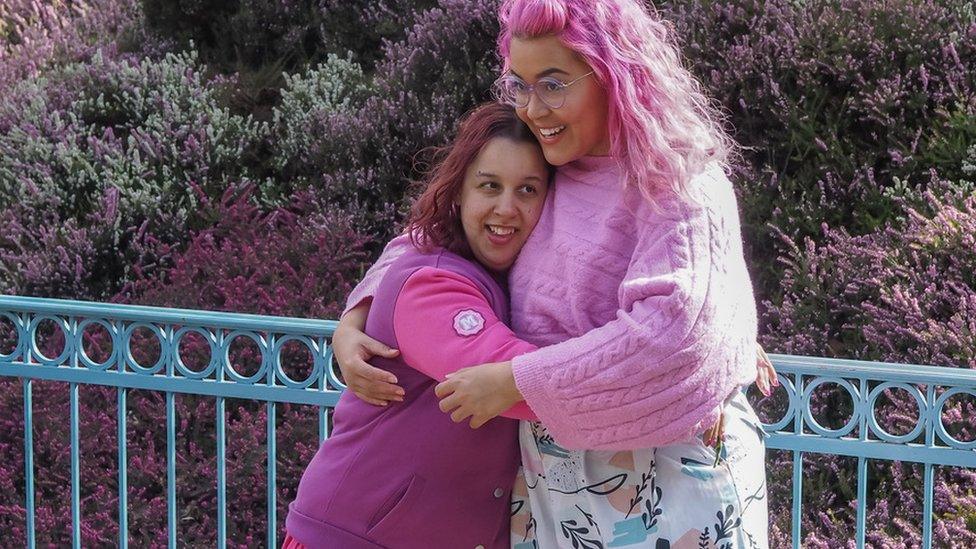
Megan works part-time as a carer for her sister Gemma who has cerebral palsy
Megan, who lives in Colchester in Essex, was recently invited to Parliament to talk to the Government Equalities Office about body image and raised the subject of "fat phobia", which she believes should be recognised as a form of prejudice.
"We cannot have a conversation about body image without tackling fat phobia. So many of our insecurities are rooted in the fear of being too fat, and for people who do exist in larger bodies, fat phobia results in real world discrimination and harassment every day."
Megan sometimes faces this criticism online from those who believe pictures of fat rolls and cellulite promote an unhealthy lifestyle. She believes conversations about health should not revolve around weight, and wants to see an end to the "flawed" body mass index (BMI) chart and the weighing of children in schools because it is "scary and humiliating".
"I'm not expecting people to necessarily love their bodies, but aim to respect them. I feel lucky I found the body positivity movement at the age I did, because I get a lot of messages from older women who have spent their lives hating their bodies, and have only just learned to accept themselves."
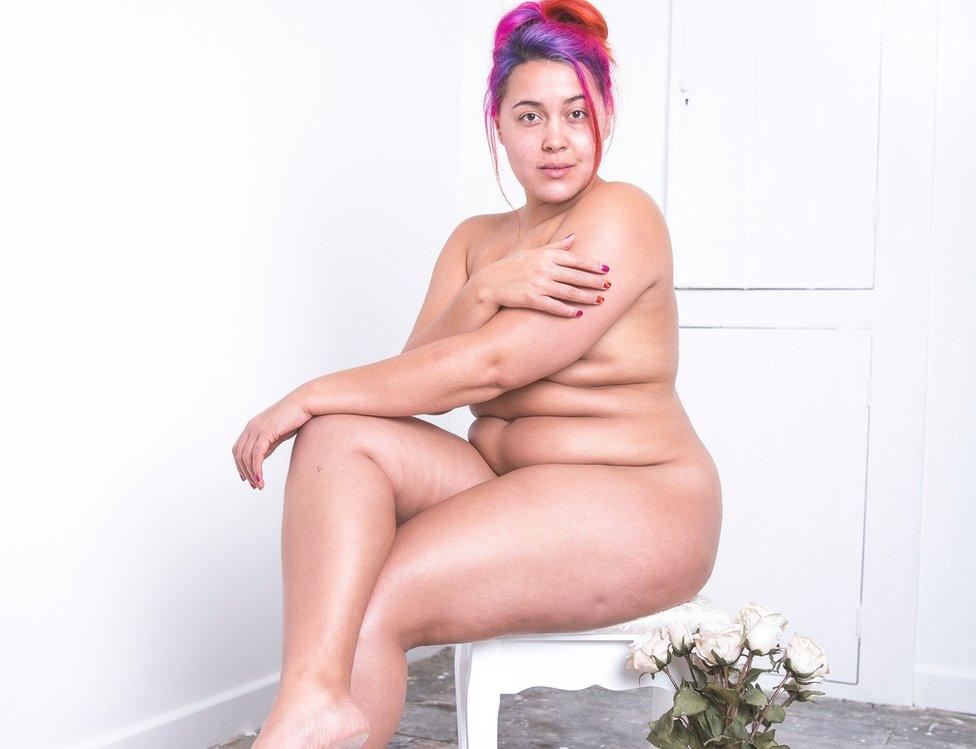
Megan has just completed a tour of live shows discussing diet culture
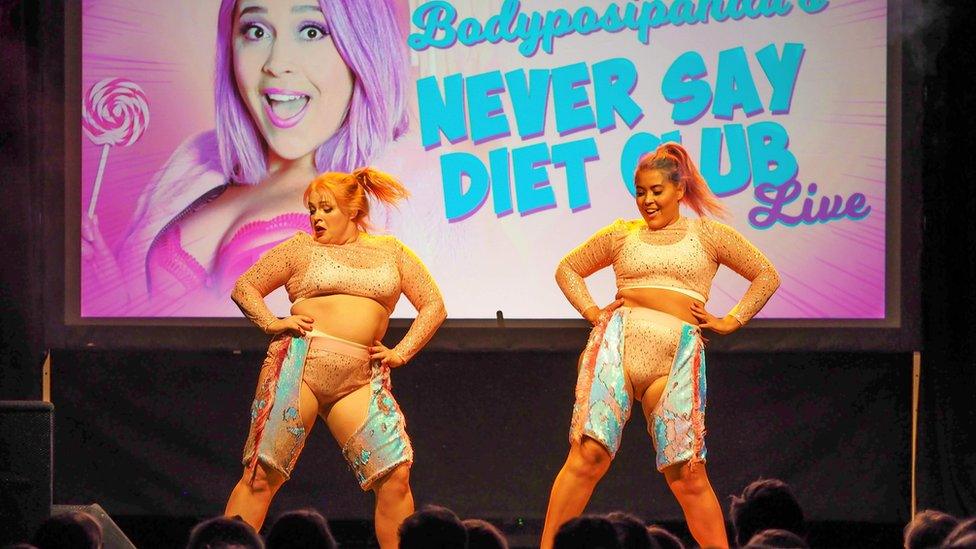
She sang, danced and discussed diets on stage with other body activists
Though some place Megan in the "influencer" category, she's keen to avoid this description because "so many people do it for their own gain". Above all, she wants to make a dent in diet culture and hopes to help people build a life based on more than just appearance.
"It has been a very long process of holding up everything I believed about weight and beauty and worth and forcing myself to question it. I had to get to a point of baseline respect for my body and learning not to pull my reflection to pieces. Now I want to help other people achieve this.
"At the age of five, I thought being fat was the worst thing I could be, I had internalised that message at such a young age, so I have come a long way. I've had a lifetime of hating myself and I don't want anyone else to feel like that."
If you are affected by any of the issues in this story you can talk in confidence to eating disorders charity Beat by calling its adult helpline on 0808 801 0677 or youth helpline on 0808 801 0711.
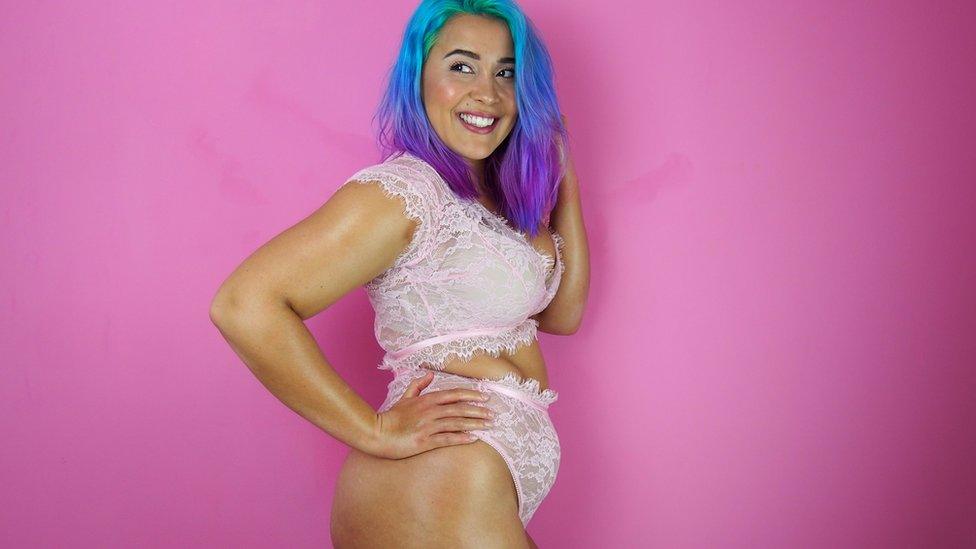
Megan gets messages from older women who have spent their lives hating their bodies, and have only just learned to accept themselves
- Published13 November 2019
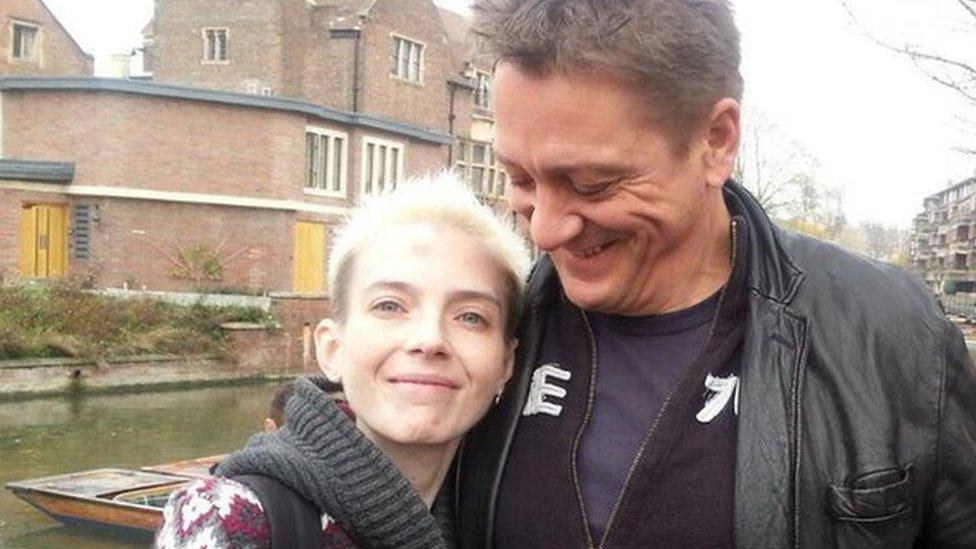
- Published30 March 2019
